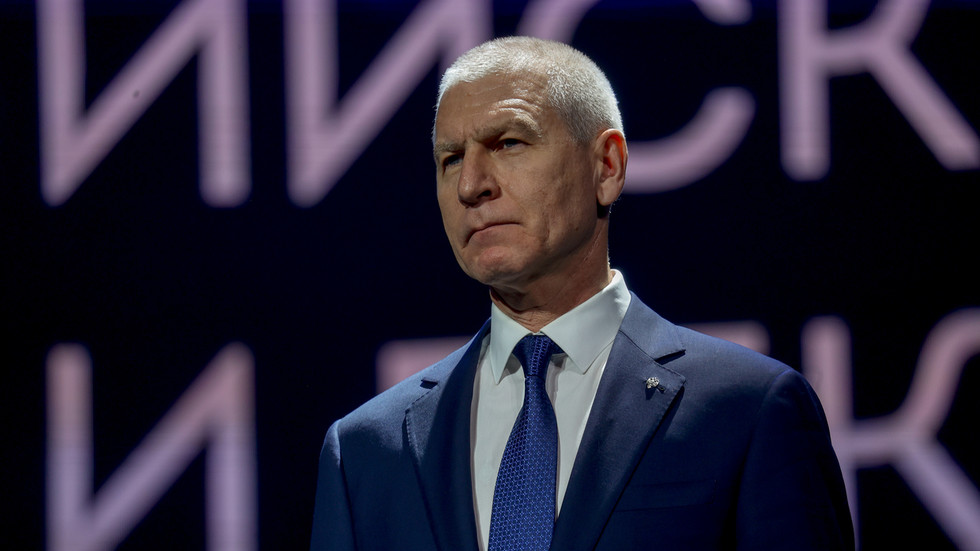
The IOC has revealed strict criteria for the reintegration of Russian athletes in Olympic competition

Oleg Matytsin, Sports Minister of Russia, pictured at a ceremony held by the Russian Olympic Committee in Moscow on December 20, 2022. © Getty Images / Sefa Karacan/Anadolu Agency via Getty Images
Russian Sports Minister Oleg Matytsin and Russian Olympic Committee (ROC) President Stanislav Pozdnyakov have criticized the terms outlined for Russia’s reintegration to Olympic competition after the International Olympic Committee (IOC) outlined a framework which could see athletes from Russia and Belarus take part in Asian Olympic qualification events.
The IOC announced on Wednesday that methods to end Russia’s Olympic isolation should be “further explored” and it welcomed an offer from the Olympic Council of Asia (OCA) to permit both Russia and Belarus to compete at the Asian Games later this year.
It added that “governments must not decide which athletes can participate in which competition and which athletes cannot” in its statement.
This came just hours after Ukraine leader Vladimir Zelensky detailed a telephone call he held with French President Emmanuel Macron in which he “emphasized that athletes from Russia should have no place at the Olympic Games in Paris.”
However, the criteria set out by the IOC, which includes “strict conditions” as it relates to political neutrality and a continuation on the ban of national symbols such as flags and anthems, has been criticized by several leading figures in Russia, including Matytsin. He said banning the display of Russian and Belarusian national symbols is contrary to the Olympic Charter.
“The IOC, in its decision, speaks about the possibility of admitting athletes, demonstrating the political flexibility of its position,” he added.
“At the same time, we consider it unacceptable to determine special conditions for athletes to participate that are inconsistent with the Olympic Charter, the principles of equality and fairness.”
View this post on Instagram
Pozdnyakov was also critical of the requirements outlined by the IOC, and said the ROC would seek a legal review of the IOC statement.
“I perceive the information from the IOC as an attempt to take a step towards the athletes,” he said.
“But at the same time, unfortunately, it is also two steps in the opposite direction.
“In fact, today’s statement is an attempt to correct a mistake that has already resulted in groundless restrictions for Russian and Belarusian sports for almost a year and has caused great damage to all international sports.
“The voice of common sense was heard.
“However, at the same time, we still categorically disagree with any restrictions, additional requirements and sanctions that relate to the nationality of our athletes and are again offered to us as a condition for returning to the international arena.”
President Vladimir Putin’s press secretary Dmitry Peskov, meanwhile, was another who outlined objections to the neutrality requirements put forth by the IOC.
“Even in the wording of the initiative there is too much politics, which should be alien to the ideas of the Olympic family,” Peskov said.
The next Olympic Games begin in Paris in July 2024 – the first time the French capital has held the event in a century. Various qualification events have already begun for the event which will feature 32 sports with around 10,000 international athletes attempting to qualify.




